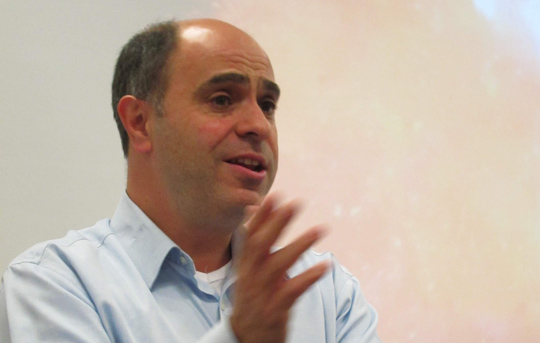Speaking on the Radio 4 Today programme this morning, Guardian editor Alan Rusbridger, and the Independent’s first editor Andreas Whittam Smith, expressed their concerns, as well as tentative optimism about the current UK newspaper climate.
“I think we have to face up to the prospect that the first time since the Enlightenment you’re going to have major cities in the UK, in Western democracies, without any kind of verifiable source of news,” said Rusbridger.
“That hasn’t happened for two or three hundred years and I think it is going to have very profound implications,” he said.
Whittam Smith referred to an ‘extremely tough’ environment and said that he was once again being asked on a daily basis whether the Independent will survive.
“The risks to all newspapers are very great,” he said, “[but] the Independent has always been innovative.”
“It has to be innovative again in these circumstances,” he said. Moving into the Daily Mail building ‘is an example of that’ he added. Like other businesses, newspapers will have to ‘share the facilities the customers don’t see’ he said.
He said that people still liked to read print, and that if free newspapers were taken into consideration circulations in the UK are only down by one million: from 14 to 13 million a day.
“People do like the stuff on the printed page – what they don’t like so much any longer is paying for it,” he said.
Rusbridger said that newspaper companies with paternalistic or maternalistic owners would fare better than those ‘with big debt’ and other types of ownership structures.
The Scott Trust [the Guardian’s owner], he said, ‘to some extent protected [the Guardian] from immediate effects of the market’.
Both agreed that there would be newspaper casualties in the near future.
Listen to the clip here.
